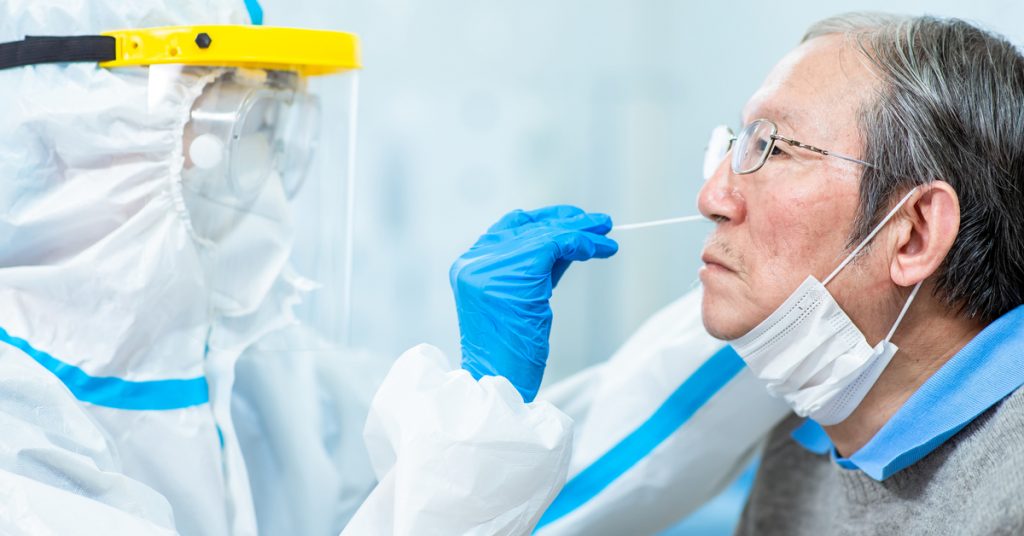Testing, testing, testing.
This is what an emcee typically barks into his microphone before a gig, but it’s also Singapore’s strategy for containing the coronavirus.
In a bid to expand testing, the Ministry of Health (MOH) announced earlier that residents will be able to take a Covid-19 test without prior approval from 1 Dec.
Previously, you had to either be unwell or meet specific testing requirements, such as pre-departure and pre-event testing.
This was also a preparatory move, as the country will shift to the third phase of its safe reopening on 28 Dec.
Now, as residents are free to take Covid-19 tests, clinics will have to prepare for the greater demand.
Clinics Are Preparing for More COVID-19 Tests as Phase 3 Starts
As the country moves to Phase 3, healthcare providers are making the necessary preparations for a rise in customers seeking Covid-19 tests.
This increased demand will likely come from people returning to the workplace, and those attending events which require tests before entering.

Such events include pilot programmes for sports events, performances, and MICE meetings of up to a few hundred people, which are currently ongoing.
Pilots for nightclubs and KTVs are also due to start next month.
Moreover, as Manpower Minister Josephine Teo recently said, some of the restrictions on returning to the workplace might be relaxed.
That’s why some companies are looking to implement some form of routine, asymptomatic testing for their employees, according to CNA.
To meet the projected increased demand, laboratory capacities will have to be ramped up so more tests can be carried out daily.
Antigen Rapid Test vs PCR Test
At the moment, there are two types of diagnostic tests for Covid-19: antigen rapid tests and PCR tests.
Unlike PCR tests, antigen rapid tests look for proteins on the surface of the virus called antigens.
Antigen tests are known for their speed, as they can deliver results within 30 minutes.
They are also cheaper and easier to administer than PCR tests.
Since PCR tests take a little longer, residents who intend to attend events and performances or even sing at a KTV outlet might opt for the antigen rapid test, as it delivers results much quicker.
However, PCR tests remain the gold standard for testing as they are the most accurate tests available today. Plus, there are PCR tests out there which could yield results in less than 10 minutes, but they are yet to be commercialised.
According to The Straits Times, antigen rapid tests have lower sensitivity and specificity, meaning they carry a higher risk of false positives and false negatives.
Sensitivity is a test’s ability to determine when an individual is infected.
Conversely, specificity is its ability to tell us when an individual is not infected.
This is why the U.S. Food and Drug Administration warned clinical laboratory staff and healthcare providers in November that false positives can occur with Covid-19 antigen rapid tests.
According to CNA, PCR tests cost around $200, while ART tests range from $50 to $80.
No Increase Yet
Despite the anticipated higher demand, there has been no increase in people requesting voluntary testing since 1 Dec, when it became available.
Dr John Cheng, head of primary care at Healthway Medical Group, said 30% of all PCR swab tests conducted at its clinics are for travel, while 70% are patients who have Covid-19 symptoms such as fever and cough.
Surprisingly, this hasn’t changed since voluntary testing started.
Given the cost and invasive nature of the test, those who are well may have no incentive to take a test, Dr Cheng said.
More may come forward if a less invasive Covid-19 test becomes available.
So, how invasive are these tests exactly?
How the Covid-19 Tests are Done
According to Mount Elizabeth’s website, the procedure begins with the patient clearing their nose.
Next, the patient tilts their head upwards, and the nurse inserts the swab stick into the patient’s nose to obtain a sample.

Some have described this feeling as being “stabbed in the brain”.
The swab stick is then removed and placed into the universal transport medium, which is then put into a biohazard bag and sent to the lab.
So, at least for now, if you really want to sing with your friends at a KTV outlet, you’ll have to be gently “stabbed in the brain” with a cotton swab first.
Featured Image: aslysun / Shutterstock.com




